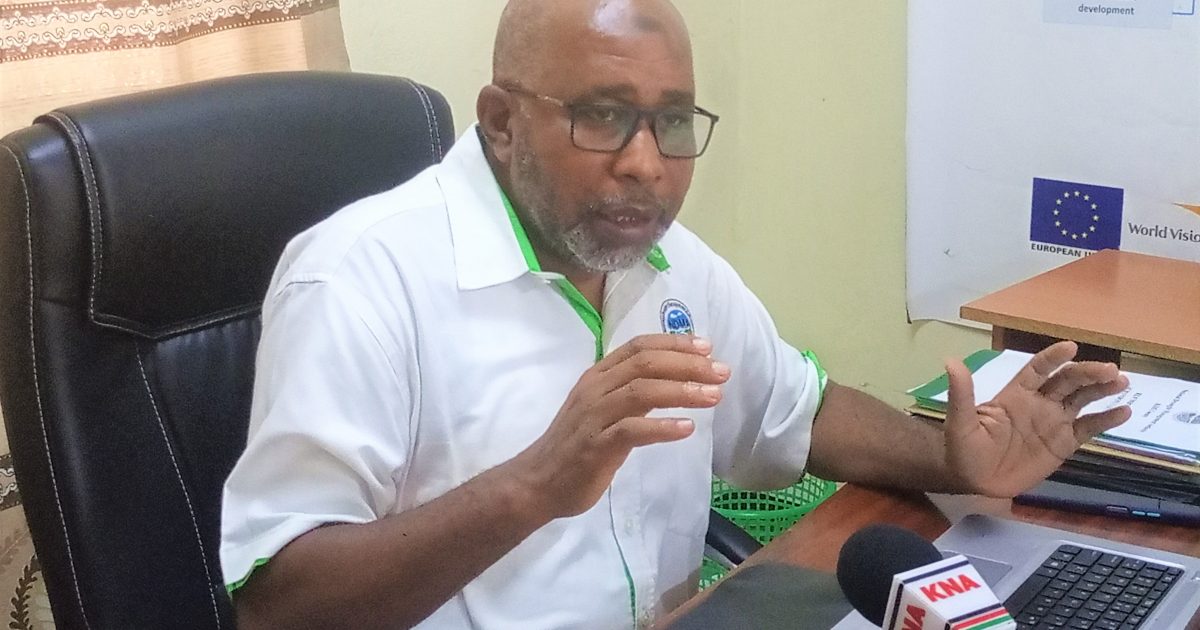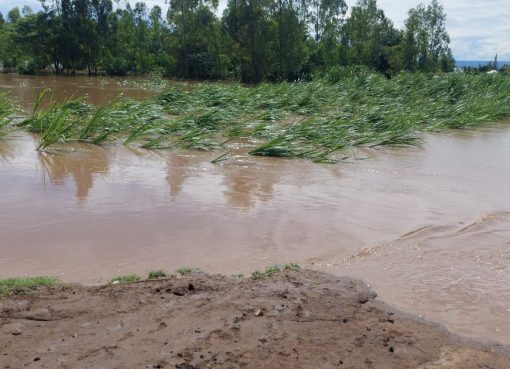At least 219,000 people in Kilifi County have been affected by drought according to the latest National Drought Management Authority’s (NDMA) short rains assessment, exceeding the 145,000 people that were affected in the previous assessment report.
There has been increased rates of livestock deaths of more than 9500 with cattle recording the highest rate of deaths due to lack of water and pasture as a result of severe drought in the county.
Speaking to the press in his office, NDMA Kilifi County Director Adam Kheri Ndamungu stated that the assessments were conducted in February this year after the county witnessed a severe drought following depressed rains in October and November last year.
Ndamungu however said that the rates of children at risk of malnutrition has decreased with most of the children examined using the mid upper arm circumference being at 0.5 per cent which is a normal rate, making the percentage of children affected by malnutrition be 3per cent.
He said that the performance of the short rains is alarming to the lives of Kilifi residents, especially crop and livestock farmers, lowering milk production, growth of grass and as a result claiming the lives of most livestock.
“I noted that water pans did not get a good water recharge except for areas like Ganze Sub-County where they experienced short rains. Magarini, Kilifi North and Kaloleni Sub-counties did not receive rain as expected, hence posing a great danger to the residents,” Ndamungu said.
Referring to the latest weather forecast report, Ndamungu reported that the rains will range at the near to ‘below normal’ and it will rain a bit longer.
He issued notice to farmers to take precautions on the number of their livestock versus the amount of water and pasture they need to sustain them with stating that drought is due after every 3 years.
“A practical example is Europe countries which are in the winter season but have enough food for the livestock and themselves to sustain livestock until the next season,” he stated.
“During this season I advise farmers to plant drought-resistant crops like green grams, peas and maize type DH4 and DK8031 which have been recommended by the Ministry of Agriculture to sustain you long enough before the next rainy season,” he added.
Ndamungu said that although the market sales were constant, it was observed that most of the food stuffs came from outside the county.
He said the government and other Non-Governmental Organizations (NGOs) have combined efforts to intervene in mitigating the worsened drought situation by distributing food stuffs to the affected people.
According to Ndamungu, the government had put in place an offtake and slaughter programme so as to help the residents but it was put on hold due to the short rains which had just started.
“The slaughter programme was to happen after three different stages which were the commercial offtake stage where farmers sold their livestock while still healthy, acceleration offtake stage where livestock are in a bad state but can be used for commercial purposes and lastly the slaughter offtake stage,” he clarified.
He offered an example from the years 2016 to 2021 in which the government donated 400 goats to the livestock keepers as well as 250 cows from NDMA which benefited 706 livestock farmers.
He mentioned that water pans in Jila and Ndigiria areas are among the largest, and called upon all the stakeholders to construct water reservoirs strictly 50,000 cubic meters and above to facilitate conservation of more volumes of water.
Ndamungu said that they have put in place some plans to make strategic facilities in collaboration with other stakeholder which include planting more trees, harvesting grass during the rainy season and providing emergency funds.
By Treeza Auma and Palmira Kabibi





